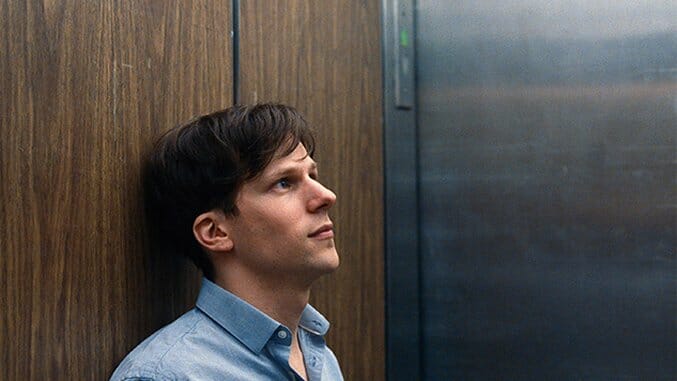Quieter Than Whispers: The Inner Life of Louder Than Bombs
Paste talks to director Joachim Trier about his latest film.

Joachim Trier’s movies are quiet. Almost too quiet for those of us used to the barrage of CGI action extravaganzas. They’re what we don’t see often nearly enough anymore on the big screen: They’re movies about days, perhaps much like ours, unremarkable other than that they’re lived within a runtime. While our continue after the credits roll, those days are little more than whispers remaining.
In his latest, Louder Than Bombs, Trier uses his careful camera to follow Gene (Gabriel Byrne), a patriarch mourning the loss of his wife Isabelle (Isabelle Huppert) after she is killed in a car accident. Three years later, the family has yet to recover. Their sons Jonah (Jesse Eisenberg) and Conrad (Devin Druid) push away from their father, seeing him culpable for their mother’s descent into depression before her death. Jonah is starting a family of his own, but is unable to move on from the tattered one in which he grew up. The youngest, Conrad, suffers the most on the outset, enduring his painfully awkward teenage years without his mom and resenting his dad. Living under the same roof again soon breaks the unspoken tension among them.
“We came up with the story of this family, and it just felt like a New York family story,” said Trier of developing his characters in Louder Than Bombs. “I wanted to get very intimate with each of the characters, and very subjective. I wanted to then base the drama on those subjectivities.”
Although it looks to be a movie mostly about grief, Louder Than Bombs is also very much about love, both romantic and familial. Trier explains, “It’s almost like the three guys are in different stages of man. It’s the story of three men trying to deal with the women in their lives. The mother passed away three years ago and still echoes in their mind.” And it’s not just women that cause these men pain. It’s also their relationships with each other. “I wanted to do this portrait of a father, not as an authoritative figure, but a loving one who wants to stay close to his boys but isn’t really allowed.”
Trier sees the inner life of his characters as a universal touchstone for many viewers, as the most interesting aspect of the stories he works on. “Every time we do a movie, it is like: How do we get into their heads? How do we show their perception of the world, their thinking? How do we make portraits of their mind rather than just the exterior façade?” he asks.
And how does a director like Trier show the audience what his largely gloomy and silent leads are thinking? “In this [movie], I had these amazing actors that could draw you in, yet I wanted to do a montage-based, freeform film that could use any trick in the book.” He elaborates, “We do a diary scene, you see scenes from different perspectives. We use voice overs, memories. It’s kind of jazzy.” Trier says that his early interest in rap, namely Grandmaster Flash and Afrika Bambaataa, piqued his interest in remixing narrative. “I’m always interested in how to create an emotion that is specific through form.”
-

-

-

-

-

-

-

-

-

-

-

-

-

-

-

-

-

-

-

-

-

-

-

-

-

-

-

-

-

-

-

-

-

-

-

-

-

-

-

-








































